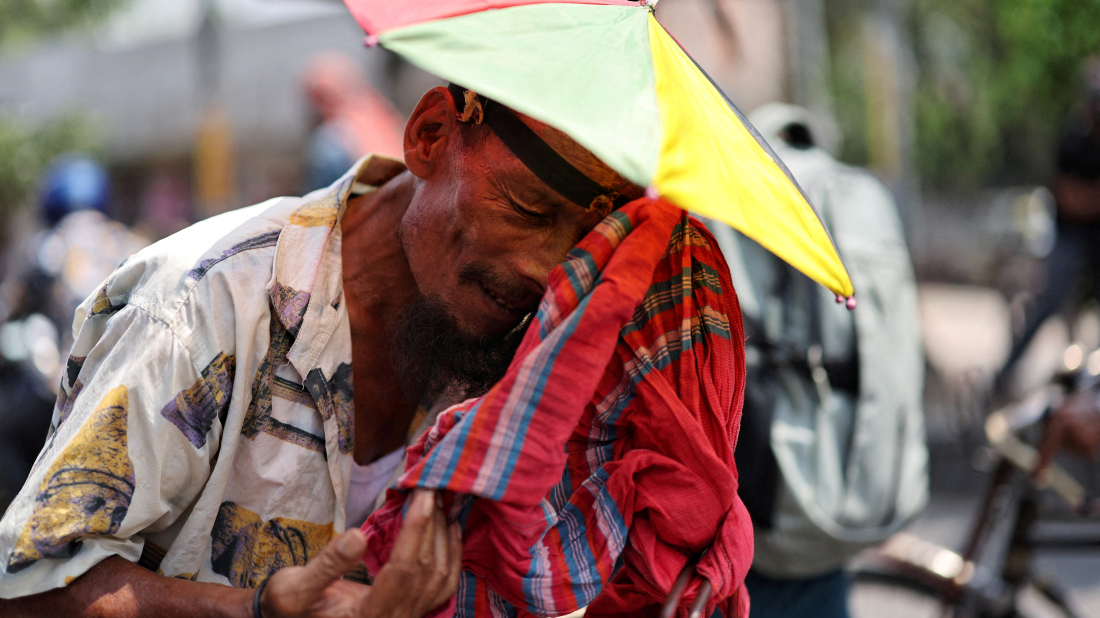'We will increase the volume of natural gas exports to Serbia,' Aliyev says
Azerbaijani President Ilham Aliyev and Serbian President Aleksandar Vučić reaffirmed their countries’ strategic partnership in Belgrade on Sunday ...

Rising temperatures are taking a mounting toll on Bangladesh, with heat-related illnesses and productivity losses costing the economy up to $1.78 billion - about 0.4% of GDP - in 2024, according to a World Bank report released Tuesday
The study shows that since 1980, the South Asian country's maximum temperature has climbed by 1.1 degrees Celsius while the "feels like" temperature has spiked by 4.5 C.
The rising heat has fuelled a surge in diarrhea, respiratory problems, fatigue, and mental health issues such as depression and anxiety. Women and older people are especially at risk.
Bangladesh's capital Dhaka has emerged as one of the world's most heat-stressed cities, with its heat index rising 65% faster than the national average. In 2024 alone, heat-related physical and mental health conditions wiped out 25 million workdays in the country, according to the report.
“Extreme heat is not just a seasonal inconvenience. Its impact is far reaching. As we see in Bangladesh that the rising temperature is affecting our health and productivity, and the country's prosperity," said Jean Pesme, World Bank Division Director for Bangladesh and Bhutan.
“By building on its experience in climate adaptation and taking a coordinated approach across sectors, Bangladesh can address the heatwave impacts and maintain sustainable growth. The good news is that it can be done, as seen in countries like Singapore and others.”
The report urges urgent action to strengthen health systems, expand urban green spaces, and improve data collection. It also calls for international financing to help Bangladesh adapt to escalating climate risks.
U.S. Ambassador to NATO Matthew Whitaker said China has the power to bring an end to Russia’s war in Ukraine, arguing that Beijing is enabling Moscow’s military campaign.
American figure skating star Ilia Malinin endured a dramatic collapse in the men’s free skate on Friday night, falling twice and tumbling out of medal contention at the Milan Cortina Winter Olympics as Kazakhstan’s Mikhail Shaidorov surged to a surprise gold medal.
“Respected and feared globally,” U.S. President Donald Trump told troops at Fort Bragg on Friday (13 February), framing America’s renewed strength against to mounting pressure on Iran amid stalled nuclear talks.
Dubai-based global ports operator DP World said on Friday that its long-serving chairman and chief executive, Sultan Ahmed Bin Sulayem, has stepped down following mounting pressure linked to alleged ties to disgraced financier Jeffrey Epstein.
Speaking at Munich Security Conference, Ukrainian foreign minister Andrii Sybiha calls for decisive steps ahead of expected Geneva talks
The administration of U.S. President Donald Trump on Thursday (12 February) announced the repeal of a scientific finding that greenhouse gas emissions endanger human health, and eliminated federal tailpipe emissions standards for cars and trucks.
Tropical Cyclone Gezani has killed at least 31 people and left four others missing after tearing through eastern Madagascar, the government said on Wednesday, with the island nation’s second-largest city bearing the brunt of the destruction.
Rivers and reservoirs across Spain and Portugal were on the verge of overflowing on Wednesday as a new weather front pounded the Iberian peninsula, compounding damage from last week's Storm Kristin.
Morocco has evacuated more than 100,000 people from four provinces after heavy rainfall triggered flash floods across several northern regions, the Interior Ministry said on Wednesday.
Greenland registered its warmest January on record, sharpening concerns over how fast-rising Arctic temperatures are reshaping core parts of the island’s economy.
You can download the AnewZ application from Play Store and the App Store.

What is your opinion on this topic?
Leave the first comment